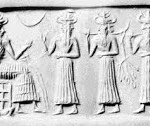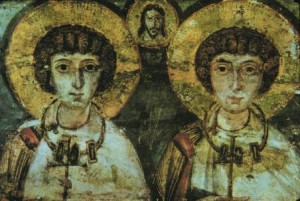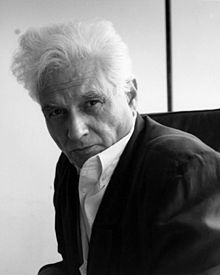Among the ruins of the old, theocratic, feudal order lives a most peculiar creature, modern man. Here stands this bizarre specimen amid a gaggle of other men of similar peculiarity, and all of them live, work, and play, all in the continual presence of what Nietzsche once referred to as the “tombs of a dead God.” And modern man, with his sincere sense of liberation looks at these tombs with an interesting view. He looks with justified disdain upon those who enter these old, lofty, halls of mourning, week after week, year after year, their bells calling out in commemoration of a Jewish peasant who was executed thousands of years ago. With his enlightened sensibilities he can’t help but regard these poor fools who spend their lives in fear of the judgment of some grandiose galactic dictator who dominates their lives, and yet allows them to fall into his disfavor. Yet, he looks at these old halls which have no meaning to him anymore, these great cathedrals signifying nothing, and he is struck by their beauty. He loves them. They are magnificent. He travels half-way around the world just to see them, spends millions to restore them, hangs portraits of them above his fireplace. How great is man in his wondrous achievements.
It is no wonder, in the case of the cathedral, why the cosmopolitan, the modern man, is so adoring of a remnant of the old order. He has never expressed a distaste in the beautiful, and in fact would be seen as rather ridiculous for not recognizing the sheer greatness and profundity of these ancient relics of that old, vile, theocracy. However, what makes him peculiar is his way of life. Most modern men, from the rabid atheist, to the more considerate agnostic, and everyone in between, would refer to themselves as “secular humanists.”
Secular humanists live by a notion of loving your fellow man for the sake of his being also a man. There is no moral order, other than caring for each other, and loving one another. No rigid rules apply here, as they did in the old world of the theist, rather, a loose series of understandings and personal beliefs hold the fabric of social reality together. Through this, reason, rationality, opinion, and freedom dominate the daily comings and goings of the modern man. But there is one thing that haunts this high-minded, rational, system of inter-subjective relations; the presence of moral absolutes. These moral absolutes range from the simple, don’t kill people, that’s not nice, to don’t hate people, that’s also not nice, and anyone who disagrees, isn’t nice, and is therefore wrong and, in a certain sense, evil.
What’s wrong with that though? You can have moral absolutes which have a firm, necessary, demand on man’s actions and decisions without there being some cosmic giver of meaning and necessity, right?
Perhaps you can, but the question becomes, why do you? It could be that these moral absolutes exist because we don’t want others to be mean, or harm us. They don’t really have a meaning behind them, no necessity, but we keep them around to make sure that other people don’t hurt us. They’re a shield against a necessary consequence of meaninglessness. So, what’s wrong with that?
This is upsetting to the Secular Humanist, who wants to retain this love between men, these great cathedrals, all without the need for a God to fill them. So, can’t you have a system of moral absolutes without religion?Our lovely friend Fredrich Nietzsche reminds us that if we have a system of morality which exists purely to keep others from hurting us, then we are only using it to seek power, and if we are only using it to seek power, then we should abolish it and just seek that power. In plain terms, we need to get our Ubermensch on. We need to move past these silly moral absolutes and live violently, not to say we have to go out and kill our neighbor, but that we need to quit pretending that we love him. We need to get over our fear of others not being nice to us, and instead realize that we ourselves aren’t nice by nature, and shouldn’t try to force it. Instead we should seek out that one greatness, that singular goal which all of creation strives for, and man perhaps the most cleverly, Power.
So, why do we have these absolutes? Why do we have Secular Humanism? Because cathedrals are beautiful. Despite how inconvenient the implications it has on sexual morality, and scientific “progress,” the old order, the Christian order, is beautiful. And just as it would be ridiculous for modern man to think that the old cathedrals are ugly, so it would be ridiculous for him to not like the ideals of inter-subjective relation set down by Christianity. This being said, Secular Humanism becomes not a violent revolt against the Church, but rather a tourist wondering into St. Peter’s to take pictures of the statuary during Mass. It becomes a parasite, a vulture living off the corpse of Christianity.This, to use Sartre’s own language, bourgeois claim that we can have a moral absolute without expressing the existence of something by way of a deity, is erroneous, and for all intents and purposes, simply a clinging to the comfort of that old order that the enlightened, rational, modern secularist has so vehemently rejected. These absolutes are a sad remnant of the old morality of the Church, and yet these absolutes are what define Secular Humanism.












